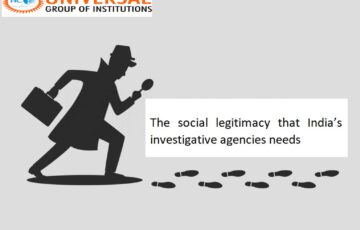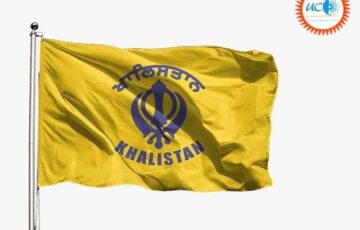Q. Bring out the role played by the Financial Action Task Force in tackling the menace of money laundering.
Approach:
- Give a brief description of the menace of money laundering.
- Briefly highlight the Financial Action Task Force and its objectives.
- Write about the role played by FATF to tackle money laundering.
- Conclude appropriately.
Answer:
Money laundering is the process where a number of financial transactions are made to show money earned often from illegal/illicit routes to be as the proceeds of legitimate and legal businesses. It has a close nexus with organized crime and terrorism.
In response to the increasing concerns over money laundering, the Financial Action Task Force on money laundering (FATF) was established by the G-7 Summit in Paris in 1989 to develop a coordinated international response.
FATF is an intergovernmental body that acts as a global money laundering and terrorist financing watchdog. Comprising 37-member countries (including India) and 2 regional organizations- European Commission and Gulf Co-operation Council, it seeks to achieve three objectives: combating money laundering; strengthening financial system; and international cooperation.
Role of FATF in combating money laundering
- Developing recommendations and providing support to member countries: The FATF has come up with recommendations that are considered as the international standards for combating money laundering. It also provides support to countries and their financial institutions in designing anti money laundering measures.
- Monitors the progress of members: The FATF monitors the progress of its members in implementing necessary measures, reviews money laundering and terrorist financing techniques and counter-measures.
- Identification of vulnerabilities: In collaboration with other international stakeholders like the UN Office on Drugs and Crime, the FATF works to identify national-level vulnerabilities with the aim of protecting the international financial system from misuse.
- Setting global standards to combat terrorist financing: Since laundered money is used in terror financing, FATF ensures all its members countries have implemented measures to cut off terrorism-related financial flows according to its recommendations.
- Evaluating countries’ ability to prevent, detect, investigate and prosecute the financing of terrorism: FATF issues two lists namely- Black list (countries that subjected to economic sanctions and other prohibitive measures by FATF) and Grey List (countries that are subjected to increased monitoring by the FATF).
- Identification of new risks: Additionally, FATF continuously strengthens its standards to address new risks, such as the regulation of virtual assets, which have spread as cryptocurrencies gain popularity.
FATF, at present, is the most comprehensive mechanism to deal with money laundering which needs to be further strengthened by various measures such as- increasing cooperation that FATF should observe for information exchange among financial units and competent authorities and formulating a standard definition of fugitive economic offenders. Also, it can be empowered to conduct investigation exercises in the cases related to terror financing and money laundering.







